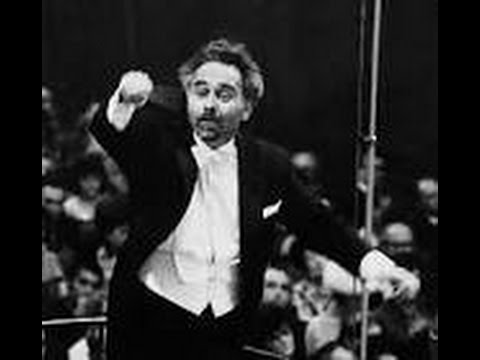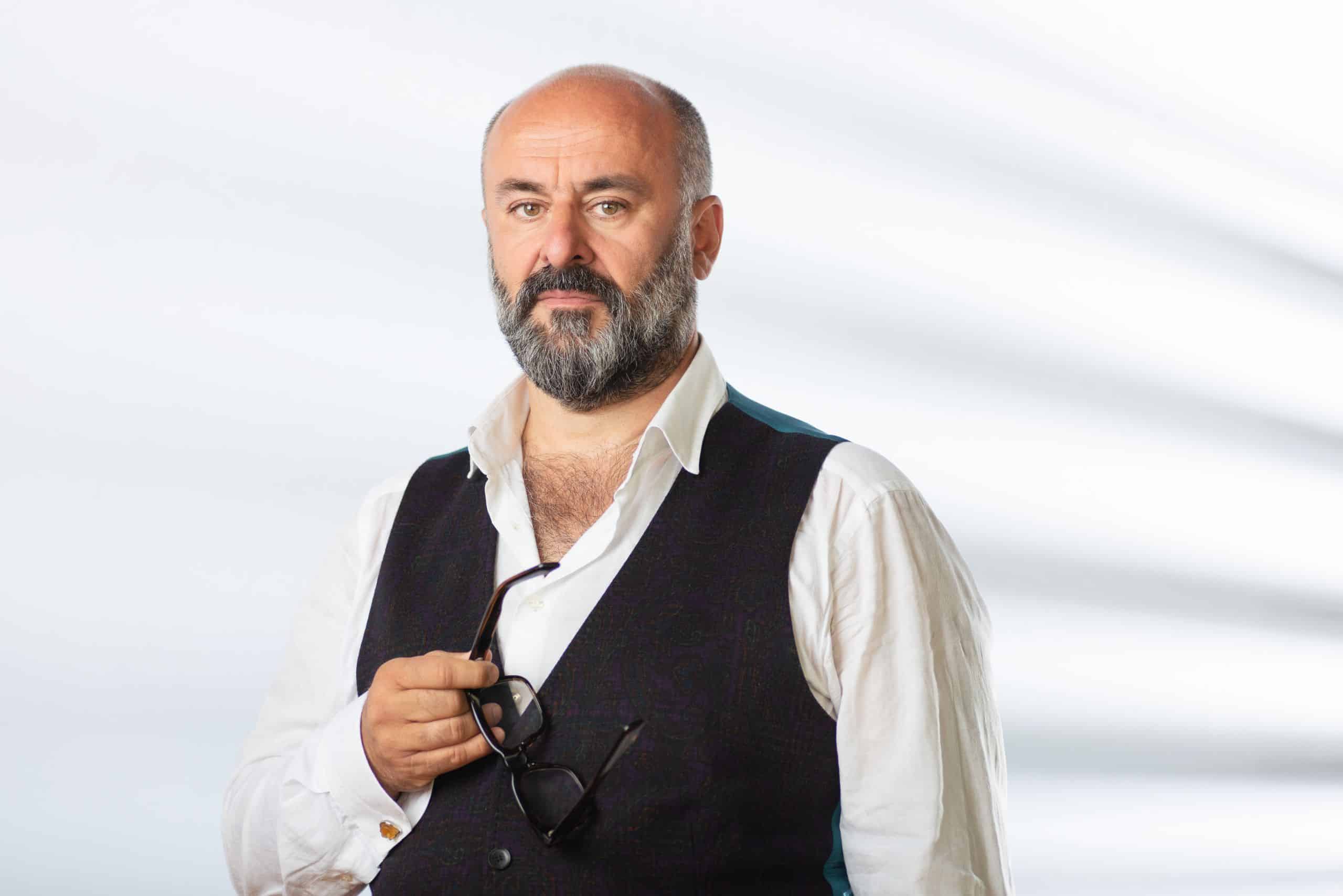Rare interview with the lost conductor of the 1970s
NewsThe death of Istvan Kertesz, drowned off the coast of Israel in April 1973, deprived the Cleveland Orchestra of its next music director and the world of a rising talent aged only 43.
I have never heard Kertesz’s voice before. It is quite high-pitched and he speaks mostly in music industry platitudes. But there is much else of interest besdes.






He was the choice of the musicians of the Cleveland Orchestra, 98-2, but they were overruled by the board who opted for LM. I’ve always wondered why George Szell never championed the Dvorak 6th as he did the 7th & 8th. It turns out that Kertesz, who left 2 superb recordings with the LSO, did perform the 6th with the Cleveland Orchestra and a commercial re-mastered release can be purchased. It is truly tragic to think about what might have been.
A magnificent conductor, tragically taken from us. A close contemporary of two other outstanding performers who were also taken far to soon – Fritz Wunderlich and Julius Katchen.
It’s interesting that he says he doesn’t like Dvorak’s 7th as much at the 6th, 8th or 9th. I’ve heard a tape of him conducting the 7th with the Philadelphia and consider it to be the greatest performance of the piece I’ve ever listened to.
Perhaps he found the 7th too Brahmsian? I’ve just been re-listening to his 6th from the Proms and imo no one beats the last measures of the 3rd movements as rhythmically as he does. Then again I think that that could be said of the entire piece. Since you mention the Philadelphia Orchestra I seem to recall in the 80’s reading about a performance that Muti led of the 6th that was supposed to be memorable.
I actually thought and still think the 6th that Yannick led a few years back was one of the highlights of his tenure so far.
The 7th is Brahmsian but István Kertész was such a marvelous Brahms conductor — his recording of the two Serenades is still the best, and his set of the symphonies is also an easy recommendation — you’d think that would make No. 7 his top favorite. I have to think there were other factors for his ranking.
When I was first getting to know the Dvorák symphonies (and that is long enough ago that some record jackets for the “New World” still called it No. 5) it seemed the most generally praised and recommended stereo recording of No. 6 was that of Witold Rowicki. It has been ages since I gave it a re-hearing.
Am I the only one who prefers Rowicki’s set of Dvorák symphonies to the one by Kertész? I also believe that in Dvorák the sound of the Czech Philarmonic helps, so I also value the first set by Vaclav Neumann. Neumann is not in the same class as Kertész and Rowicki, but he’s pretty good too.
I had never listened to the Rowicki/LSO recording before now. My initial reaction is that it is well led but doesn’t leave me nearly as impressed as Kertesz with the same players from the same year. Rowicki’s approach to me is much more lyrical and a series of vignettes whereas I find Kertesz a force of nature who presents the music twists and turns seamlessly. I don’t mean to be at all dismissive or ignorant but it is similar to an interpretation from a native speaker vs. someone speaking a second language albeit reasonably fluently. Perhaps a better analogy would be one conducting with a score whereas it wasn’t necessary for the other.
Last, in several places I found Rowicki beating time a bit stiffly where Kertesz somehow manages a fluidity which I find suits the music better. Again, at the end of the 3rd movement the differences for me were pronounced. I enjoyed Rowicki more than Neumann and CvD with the CO but for me my preference remains. Thanks for the suggestion!
I should clarify that when I said too Brahmsian I wasn’t denigrating Brahms or Kertesz’s way with Brahms. The set with the VPO was an excellent first integrated approach and the Serenades with the LSO are superb. I meant that starting with the Dvorak 5th and continuing with the 6th, 8th, and 9th the idiomatic Czech character is unmistakable and the 7th somewhat less so.
Regarding the Serenade #1 I regret not asking Myron Bloom if he knew why GS never performed it with the CO. As much as I enjoy Barry Tuckwell’s opening solo and the interplay with the LSO principal winds I would pay any price to hear what Bloom, Lifschey, Marcellus, Sharp, and Goslee would have made of just the 1st movement.
I’m not sure he did say that – it’s just his strange use of English. I hear him say (at 2:45) “I do NOT like less No. 7 in D minor; I think those four symphonies [i.e. the last four] are grand masterpieces.”
Barry, I think it’s possible that you misunderstood him. If I heard correctly, he said: ‘I do not like less, No. 7’. I would take that to mean that he didn’t like No. 7 any less than 6, 8 or 9, not that he liked No. 7 less than 6, 8 and 9.
He was never going to Cleveland. While the musicians polled in his favor, he declined the offer
Sorry, but he never declined an offer; much to the chagrin of the musicians an offer was never made to him by the MAA of the Cleveland Orchestra. The Orchestra thought so highly of him that in the Spring of 1973 Rafael Kubelik led a memorial concert of the Bruckner 8th.
A friend – now gone – was on the conductor search committee. They were shocked when at a meeting MAA informed them that LM had been engaged. He wasn’t even on their list. And yes, IK was their overwhelming first choice.
I always considered Lorin Maazel to be a sub-standard musician & conductor. Still do. His interpretations never brought out anything close to what a composer intended.
I once had to settle for Maazel as conductor of the LPO in Mahler 4 at the then recently opened Symphony Hall in Birmingham when Tennstedt was indisposed. A profound disappointment. To make matters worse, Cheryl Studer was also replaced at the last minute!
Thanks so much for posting this interview. Kertesz was such a marvelous conductor. I treasure his recordings and wish that there had been many more of them.
Back in the ‘90s, I re-mastered a huge swathe of analogue recordings for re-release on CD. I was supplied with the original scores from the sessions, showing the edit plan – my job, essentially, was to clean up the edits and smooth out the levels and so on. The Kirtesz Dvorak set was astonishing! Absolutely riveting performances, and no edits in the entire set, just one take of everything.
I also recall reading some time ago that Ormandy considered retiring around that same period; late 60s/early 70s, and that he spoke with Kertesz about the possibility of taking over for him in Philadelphia.
Of course, Ormandy changed his mind and stayed on another decade, so the point became moot.
Yes, this story is in the PO’s official history of the Academy of Music, Within these Walls.
Excellent reviews always interesting articles.
Great stuff! It’s always good to hear conductors talk about their work. I need no encouragement to play Kertesz’s 1960s LSO recordings of Dvorak’s symphonies. For me they are the best ever; although I will always go back to Charles Groves’s 1976 recording of the sixth with the Royal Philharmonic Orchestra as my ideal performance of this. Another gem is his recording of orchestral music (Hary Janos Suite and Dances of Galanta) by Kodaly – also with the LSO – which is another oft-played LP.
An interesting story concerning the latter disc was an enthusiastic review at the time of its release giving high praise for the orchestra’s then principal horn, Barry Tuckwell, for some notable solo playing, whereas it was infact Alan Civil guesting in the seat on that occasion.
I’ve always enjoyed the recordings I have conducted by Kertesz and good to have been provided with this gem.
I had never heard any of his Schumann performances before this:
https://www.youtube.com/watch?v=sVIocpfidPo&t=912s
I don’t know what caused the “misunderstanding” that led to the end of his appearances with the LSO but from a strictly musical perspective I can’t imagine today an orchestra that wouldn’t line up for his services.
@Amos……All I am aware of is that his contract with the LSO was not renewed after 1968 because he sought total control of all artistic matters, and the LSO – being a self-governing orchestra – wouldn’t tolerate this. No surprise really, as they’ve always had a reputation for chewing up and spitting out conductors and players alike.
Thank you! I wonder if his more frequent associations with the VPO and US orchestras played any part? Colin Davis and the LSO were a good match but imo they have never sounded as fresh, dynamic, and even joyful as under Kertesz.
Kertesz was one of the best of the younger conductors when I was working in the library of The Philadelphia Orchestra in the ’60s. I suspect that, had he lived, his next orchestra would have been the Philadelphia and not Cleveland. Ormandy, a fellow Hungarian, thought very highly of him, and within the orchestra, there was talk of Ormandy’s wanting Kertesz to be his successor.
I think that by early 1973, before IK’s tragic death, the fix was in place for Ormandy to favor Riccardo Muti to lead Phila. Nevertheless, the Kertesz concerts in Phila. during this era included Hary Janos Suite, Mozart 33, Mahler 4, and Dvorak 7 in some of the most inspired, unforgettable Phila. Orch. playing imaginable.